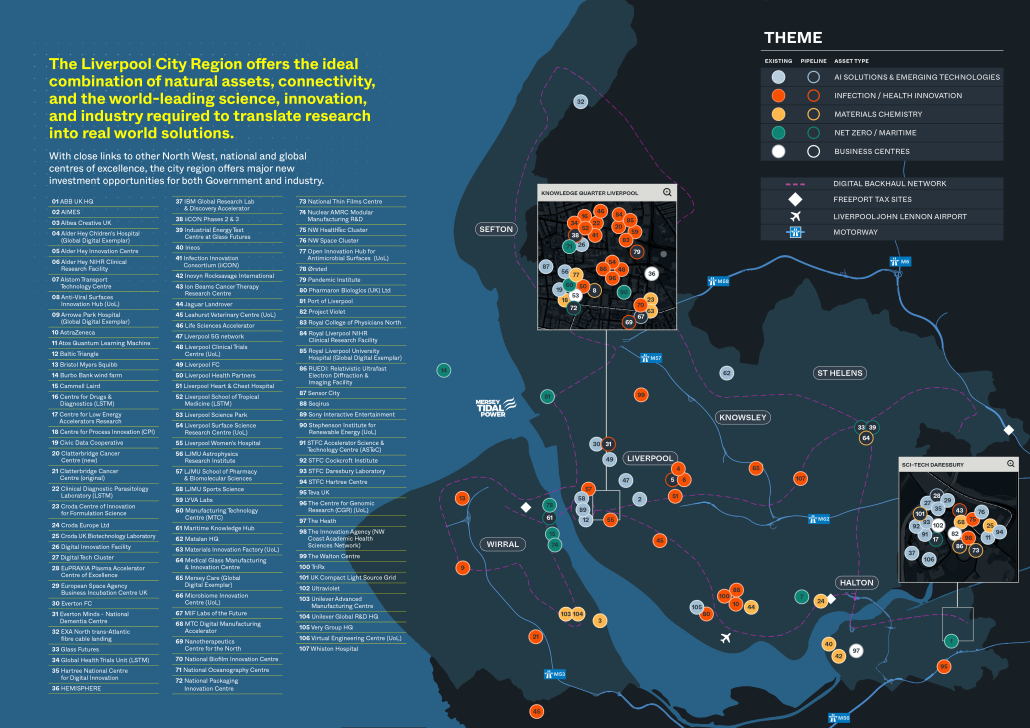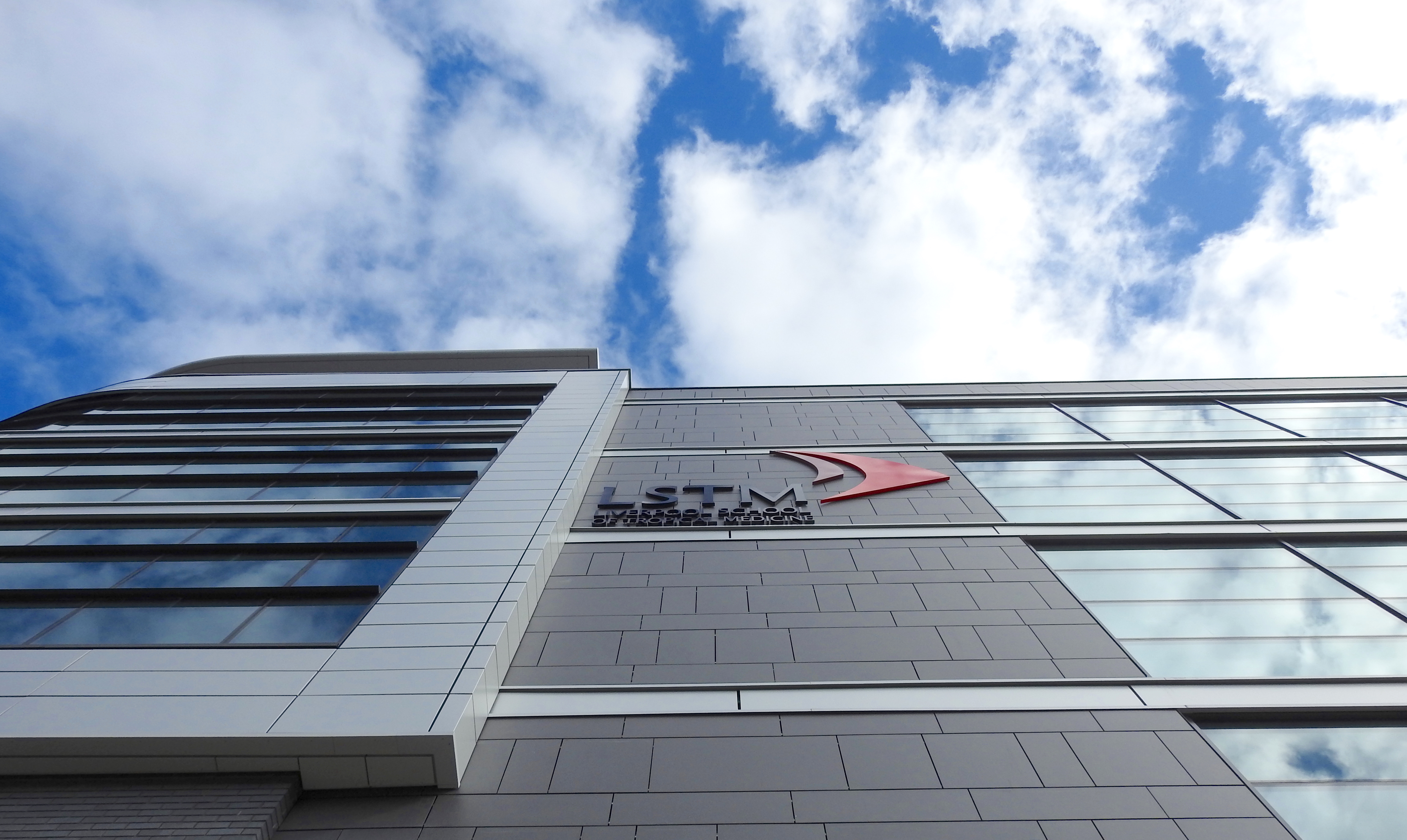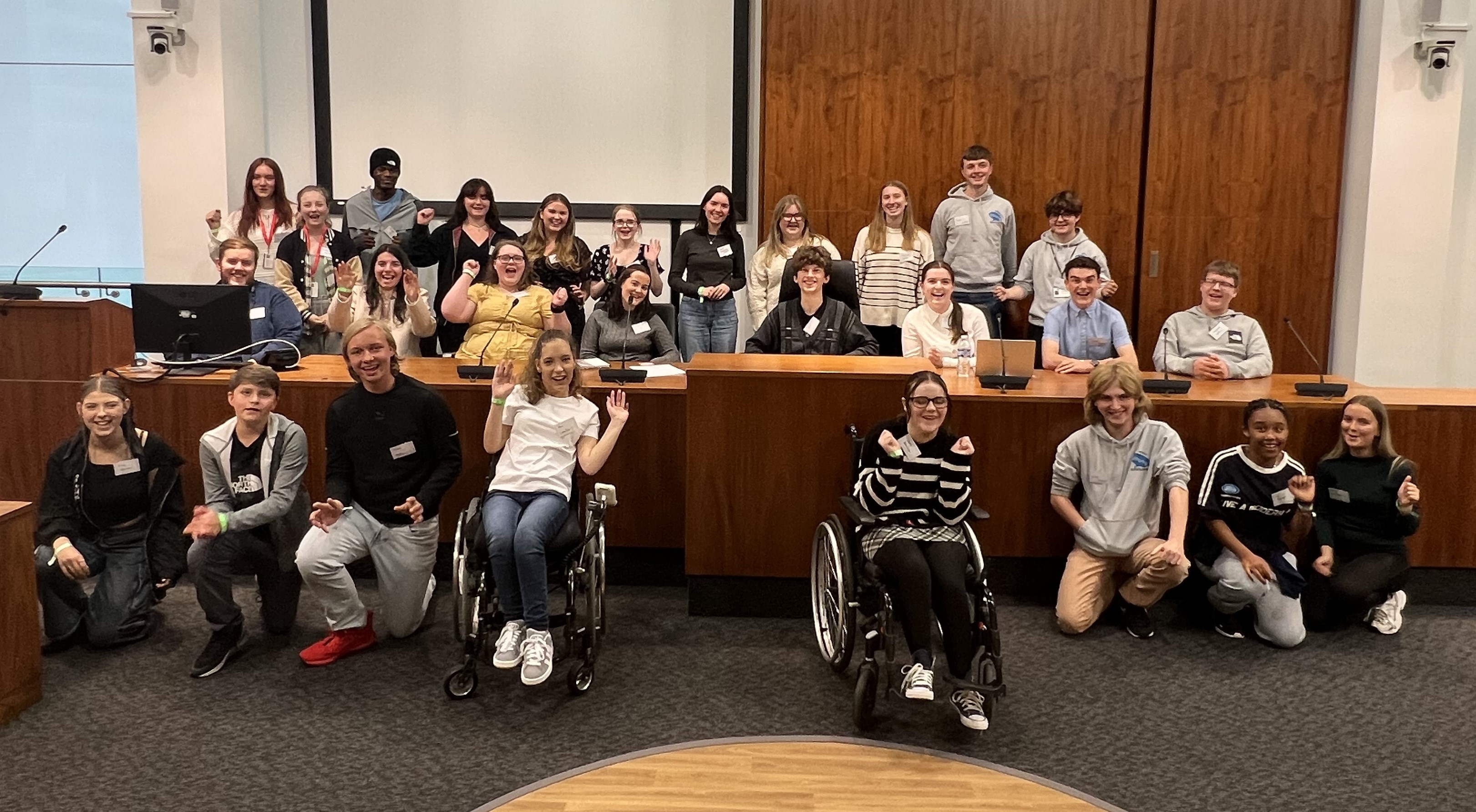Glass Futures is a globally unique development that’s not just a flagship for Liverpool City Region innovation but is also leading the way in decarbonising energy-intensive industry. General manager Aston Fuller tells us more about the world-leading project in St Helens – the home of glass.
Back to What we do
Innovation
Maximising our distinctive world-leading assets and capabilities to drive regional and national economic growth

Our ambition
Our ambition is to invest 5% of Liverpool City Region GVA in Research & Development (R&D) by 2030.
That’s nearly double the Government’s target of investing at least 2.4% of GDP in R&D by 2027 – as the UK strives to consolidate its position as a science and innovation superpower.
To reach the UK target some regions must over perform and the Liverpool City Region is perfectly placed to do just that.
Achieving the city region’s 5% target would deliver an estimated £41.7bn of gross economic benefit, a 10% increase in productivity and 44,000 new jobs.


What makes the Liverpool City Region ideal for R&D investment?
- Distinctive world-leading capabilities and competitive strengths in infection, health and life sciences, materials chemistry and AI/high performance computing.
- Major emerging strengths in offshore wind, hydrogen power, tidal energy and industrial decarbonisation, plus a place of world-firsts in decarbonising industry as we strive towards our target to be net zero by 2040.
- Our long-standing pedigree of world-changing invention and applied science. We created the world’s first commercial wet dock and tropical disease research institute. We are the birthplace of the railways, and are the home of the Lever brothers landmark mission to ‘make cleanliness commonplace’, Beecham’s first pill factory and where Pilkington pioneered float glass. And we continue to be a place of pioneers and innovation in old specialisms and new.

Distinctive world-leading assets and capabilities that are catalysing wider innovation clusters
Unilever
Unilever’s global R&D HQ and IP powerhouse at Port Sunlight.
Liverpool Tropical School of Medicine
Liverpool School of Tropical Medicine (LSTM) – a leading recipient of funding from the Bill & Melinda Gates Foundation and the Wellcome Trust, and with of the UK’s highest per capita FTE research income.
Materials Innovation Factory
The University of Liverpool’s Materials Innovation Factory, which is a world leader in materials chemistry discovery and robotics/lAI-enabled ab automation.
STFC Hartree Centre
The STFC Hartree Centre which in conjunction with IBM Research hosts the world’s most powerful supercomputer dedicated to solving industrial R&D challenges.
UK-leading science campuses
UK-leading science campuses Knowledge Quarter Liverpool and SciTech Daresbury (sister to STFC Harwell), plus other emerging asset-based clusters across the LCR.
Actions speak louder than words: a track record of industry-backed innovation and investment with more to come
- £2bn innovation infrastructure investment in the 5 years pre-pandemic
- £725m of live projects underway, to solve critical challenges and unlock UK and global market opportunities, including:
- £210M STFC Hartree National Centre for Digital Innovation the de facto national AI solutions centre, consolidating IBM’s global research lab at Sci-Tech Daresbury, and the only IBM discovery accelerator outside the USA.
- LSTM-led iiCON (infection innovation consortium) programme is 1 of only 6 Round 1 UK government backed Strength in Places Fund projects. It’s targeting £1bn investment in 10 years, and within 18 months had already leveraging 10x private investment from £18m UKRI funding.
- Glass Futures is a global glass industry-led R&D, innovation and training hub, aiming to evolve into a wider industrial decarbonisation campus.
- Hynet is a pan-NorthWest and North Wales hydrogen production and carbon storage innovation programme. It has already led to the world-first industrial fuel switching at Pilkington and Unilever – using hydrogen to power energy-intensive industrial processes.
- 212km gigabit capable LCR Connect full fibre network being delivered via an innovative international commercial JV and creating the infrastructure to drive further innovation.
- A further £2bn R&D project pipeline, rising to more than £9bn if Mersey Tidal – the UK’s largest public sector led renewable energy project – and Hynet NW are included.
An environment for innovation that sets us apart
Liverpool City Region continues to attract some of the world’s brightest minds and most innovative businesses. Ever wondered why they’re so keen to live, work and invest here?
‘In Liverpool City Region there’s a culture of doing more with less. I think we – just by necessity almost – have become more inventive and more entrepreneurial because we haven’t traditionally got the huge amounts of investment that have gone into the South East.’ STFC Executive Director of Business and Innovation Paul Vernon gives his verdict on why Liverpool City Region is an innovation powerhouse.


